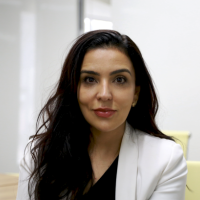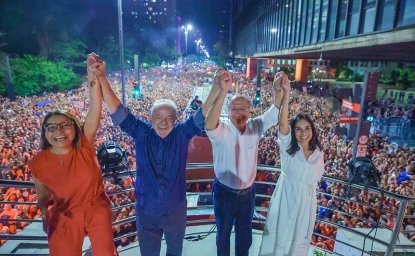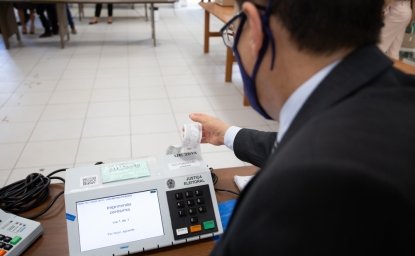Brazil100: Exploring President Lula's First 100 Days
The Brazil Institute's project, Brazil 100, explores the implications of Lula's first 100 days in office.

A blog of the Brazil Institute
The Brazil Institute's project, Brazil 100, explores the implications of Lula's first 100 days in office.

The first 100 days of government are critical in setting the tone and direction for the rest of the term. It is a time when the new government is formed, and the legislative agenda is set. This is especially true in the case of Brazil, where President Lula has been elected for his third term. He takes office facing a divided nation and facing economic headwinds.
The Brazil Institute's project, Brazil 100, explores the implications of Lula's first 100 days in office. The project's interviews, podcasts, and articles will focus on the country's key challenges and the political landscape, including sluggish economic growth, poverty, deforestation, and climate change. Through this project, our audience can gain insight into the strategies and policies that their new president is taking to address these issues.
President Lula will lead a deeply divided nation and has pledged to reactivate and boost policies to address the economic and social inequalities in the country, as well as tackle the challenges of climate change and environmental conservation.
Brazil100 is a project led by the Brazil Institute in collaboration with the Brazilian Report.


The Brazil Institute—the only country-specific policy institution focused on Brazil in Washington—aims to deepen understanding of Brazil’s complex landscape and strengthen relations between Brazilian and US institutions across all sectors. Read more


The Wilson Center’s prestigious Latin America Program provides non-partisan expertise to a broad community of decision makers in the United States and Latin America on critical policy issues facing the Hemisphere. The Program provides insightful and actionable research for policymakers, private sector leaders, journalists, and public intellectuals in the United States and Latin America. To bridge the gap between scholarship and policy action, it fosters new inquiry, sponsors high-level public and private meetings among multiple stakeholders, and explores policy options to improve outcomes for citizens throughout the Americas. Drawing on the Wilson Center’s strength as the nation’s key non-partisan policy forum, the Program serves as a trusted source of analysis and a vital point of contact between the worlds of scholarship and action. Read more



